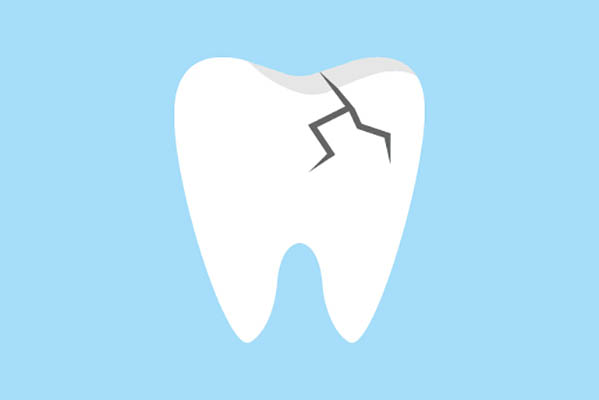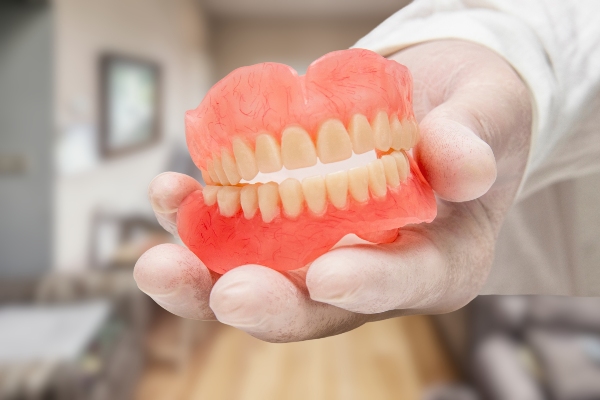Dental Emergencies: What To Do for Broken Teeth

Worried about dental emergencies and what you should do if one occurs? Continue reading to find out more. Dental emergencies can be frightening, especially when they involve a broken tooth. However, it is important to know that modern-day dentistry has allowed for the evolution of a lot of different treatments to address and treat dental emergencies of all kinds. Nonetheless, it is necessary to know what to do when a dental emergency such as a broken tooth occurs.
Tips for dealing with a broken tooth
Outlined below is a quick overview of what one should do when experiencing a broken tooth. This type of dental emergency is one that does require immediate attention, which is why the following information is worth reviewing ahead of time:
1. Contact a dentist
First and foremost, when a dental emergency occurs, it is necessary to contact a dentist. Most people have their own dentist that they visit on a routine basis, which should be one's first call. However, because dental emergencies tend to be unpredictable, there is a chance that one's regular dentist is not open or available. In this case, it is advised to contact an emergency dentist. Emergency dentists typically work in facilities that serve as dental urgent care. They have more staffed dentists and are open later than typical business hours. If this is not an option, visiting a local emergency room is the next thing to do as they are also equipped to deal with dental emergencies.
2. Gather the tooth or any pieces
If and when a tooth breaks in a dental emergency, it is advised to look for any broken pieces. Of course, if the entire tooth came out then it is necessary to hold on to that by placing it back into the socket or in a glass of milk. However, not all broken teeth result in complete dislodgement. If a piece of a tooth breaks, it is still necessary to grab any pieces and put them aside. Putting them in a sealed container or bag until a dentist can address the break is best so as to avoid infection.
3. Stop any bleeding
Dental emergencies do not always cause bleeding, however, with broken teeth, it can happen, especially if the entire tooth is dislodged. In the event that there is bleeding around the area, it is crucial to stop it. Applying pressure with a piece of gauze or a clean towel can be helpful in reducing blood flow and halting it. In the case of a break, bleeding typically stops quickly. If it continues, it is advised to visit an emergency room immediately.
4. Take an over-the-counter pain reliever
Another tip that can be useful for dental emergencies, especially broken teeth, is to take over-the-counter pain medication. Typically, when a tooth breaks, there is discomfort and swelling too. Over-the-counter pain relievers can help relieve discomfort and reduce swelling or inflammation that results from the break.
5. Assess appropriately
One of the most key tips when dealing with any dental emergency is to simply assess the situation. For broken teeth, it is advised to carefully examine what is broken. For example, a tooth can be completely broken, thus leaving only a portion of the tooth in the actual socket. In other cases, a small piece of the tooth may have broken off, but not the entire tooth. It is important to assess appropriately in order to properly explain the situation to the dentist later on.
Aside from assessing the break for the dental specialist, it is also necessary for immediate action. If a tooth is completely broken and dislodged, it is advised to stick the tooth in a glass of milk or saline until a dentist can provide attention. In the event that the tooth is not completely broken, adhesives may be recommended, such as store-bought denture adhesive.
The bottom line
When dealing with any dental emergencies, especially a broken tooth, it is crucial to see a dentist as soon as possible. Typically, a clinic that offers emergency dentistry treatments is the first point of contact, if one's general dentist is not available. Knowing how to appropriately deal with dental emergencies can be quite helpful as they are unpredictable, which is why we recommend having a thorough understanding of the information above. Any unanswered questions or concerns can be directed to a general dentist. Reach out to our dental office today to learn more, or to schedule an appointment.
Request an appointment here: https://brimhalldentalgroup.com or call Brimhall Dental Group at (661) 249-1122 for an appointment in our Bakersfield office.
Check out what others are saying about our dental services on Yelp: Emergency Dental Care in Bakersfield, CA.
Recent Posts
You may have heard of Invisalign® but perhaps you do not quite understand what makes it stand out from traditional braces. Each straightening tool uses different methods to move teeth into more aesthetically pleasing positions.The goal of traditional braces is to correct crooked teeth and jaw or bite issues. Many dental patients seek this corrective…
A cracked tooth may be a dental emergency if certain more severe symptoms develop. Although not every cracked tooth requires immediate attention, it is important to understand the more serious symptoms that indicate a cracked tooth is a dental emergency and requires prompt care.If your cracked tooth causes a high level of discomfort or increases…
A cracked tooth that goes untreated for an extended amount of time can lead to severe complications. Continue reading to learn about the risks of leaving cracked teeth untreated. Dentists generally recommend having a cracked tooth repaired as soon as conveniently possible, and it may become an emergency situation if the symptoms worsen or lead…
A chipped tooth can affect your smile's appearance and oral health, leading to discomfort, sensitivity, and self-esteem issues. Fortunately, there are several effective options to restore a tooth's natural look and strength. A variety of treatments are available, depending on the severity of the chip, its location, and your treatment goals.A chipped tooth can result…


